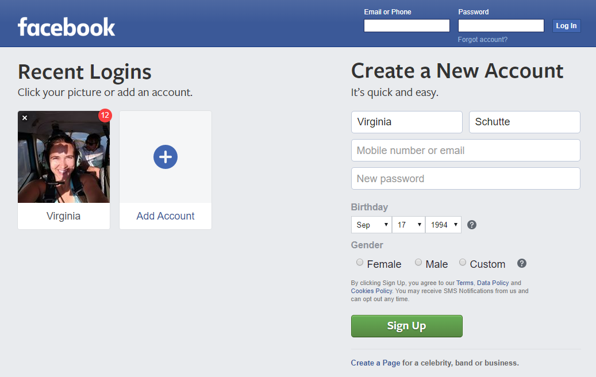The first week of the first ever Scifund Outreach Course (Scifund Outreach 101) is now complete.
Week 1 was mostly set up and getting familiar with the environment, as we requested students sign up for Twitter, Google+, Wikispaces (Scifund Wiki), and Google Groups, and then start playing around. We also asked students to sign up for Google Hangouts with us for some wonderful discussion into what is holding back science outreach.
If you didn’t get to sign up for a hangout, or aren’t registered for the course, don’t fret! I’m going to share some of the questions that were discussed along with the perceptions of science outreach in the scientific community. As you read this post, I want you to think about the topics discussed and how these perceptions affect your contribution to science outreach.
Is your scientific network supportive? (This includes collaborators, advisors, department, etc.)
To me, this was the most important question asked in the hangouts that I hosted. It was also the question that got the most varied responses. There are a number of motivating factors that push a person into science outreach, and most definitely one of those factors is the environment. Obviously, every person is different, but I feel it is safe to say that scientists who are encouraged and trained to communicate effectively will be more inclined to do so compared to people who are discouraged.
The point of this outreach course is to provide this very environment.
So how supportive is your network?
Some students find themselves in very encouraging labs and organizations. Others find themselves in discouraging situations. But even when your network isn’t directly discouraging, it could be indirectly so. In this scenario, advisors, collaborators, and supervisors won’t go out of their way to discourage outreach, but they don’t see the value of it and disregard outreach as a waste of time. In this situation, students may find themselves passively discouraged, through priority: “You should be doing research instead.”
What, personally, is holding you back from doing outreach?
Like I said, there are many factors that contribute to your outreach efforts, outlooks, etc. In the hangout sessions, I always tried to ask what their fears and hurdles are when doing outreach. If only I had thought to phrase it like this! This question was most important for students to hear other students’ perspective. Knowing that your peers are having the same issues as you, helps you understand that you are not alone in your efforts. And not surprisingly, many of the students have the same restrictions.
The biggest restriction is technological challenge. Simply put, there are a lot of tools on the web and it is impossible for anyone to keep up with all of them. More so, it is difficult for anyone to even be experts at a lot of them. How do you work around this? Develop a strategy. This will allow you to understand what you need to do, and what tools you will need to fulfill that strategy. This will minimize the time you spend learning tools, and maximize your effort and engagement.
The other major hurdle is the communication barrier. Everyone in the course acknowledges that communication is key, and that everyone could benefit from developing their communication skills. Why can’t all scientists think this way? What many of the discouragers fail to realize is that outreach is excellent for developing communication skills that are vital in scientific careers. Every scientist will give a talk about their research at some point in their career. That presentation could earn you a degree, a job, a collaboration, etc. So why not give the best possible presentation?
Are there any potential career conflicts with outreach?
I got into this a little above, as outreach can give you skills that can enhance your career. But this answer is kind of a response to the thinking that outreach is a waste of time. Many of the students in my hangouts discussed potential negative backlash from outreach, which was highlighted in this video:
[youtube]https://www.youtube.com/watch?v=ALQBNktyfxs[/youtube]Despite the ultimate in outreach horror stories, Sarah manages to maintain a positive attitude. But how frequently do these horror stories occur? What if your message isn’t what the public wants to hear? Is there a stereotype for scientists who do outreach? (Ie, they can’t cut it in the research world.)
These are all very valid questions, and some are pretty scary to think about, especially when they affect your career. I don’t have any outreach horror story first hand, but I doubt they are frequent. If there was a common backlash from outreach, no one would do it.
But what about the misconception of scientists who do outreach? That is just a misconception. There are many scientists who survived the rigors of their PhD program, braved their post-docs, and walked through fire to get tenure, and do outreach. In some cases scientists may make a career change to do outreach full-time. In these situations many of the scientists involved were recruited to use their analytical skills to present the truth. After all, why not digest information directly from an expert in the field?
Outreach doesn’t necessarily need to be solely about communicating research to the public. It can also be a collaborative environment. In some hangouts, the discussion moved toward combining research and outreach. Citizen science projects are the best example of this. By communicating properly, web surfers are recruited to contribute to science directly through projects like the Galaxy Zoo. Even open notebooks (like this one here) provide some collaboration of science outreach and research. If communicated properly, you may even have some public engagement.
Conclusion
There is a lot to consider when starting an outreach campaign. Identifying the hurdles in your path can help you overcome those hurdles, which make it much easier to define your outreach plan and achieve it. The motor behind outreach is your ability to communicate, and the desire to improve your communication skills will help you develop your outreach plan. In fact many of the discussions gravitated toward developing your message for communication. In week 2, students will be using the “message box” approach to develop their message, and if you are following along you should too.



3 comments on “Outreach Training Class Week 1: Hangout Review”Add yours →
Comments are closed. You can not add new comments.